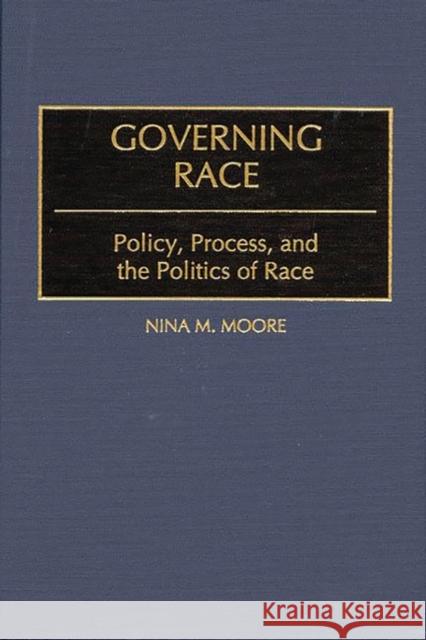Governing Race: Policy, Process, and the Politics of Race » książka
Governing Race: Policy, Process, and the Politics of Race
ISBN-13: 9780275967611 / Angielski / Twarda / 2000 / 248 str.
Moore argues that there is a fundamental incompatibility between race and governance. She examines the formal procedures used to enact the thirteen major civil rights laws and the policy concessions necessitated by the use of those procedures and notes the impact of the divisive nature of the politics of race upon procedure and substance.
Her analysis of 40 years of congressional civil rights lawmaking reveals that whenever race is introduced into the normal policy process, that process breaks down. In its place emerges an abnormal policy process--one that is inordinately demanding with respect to skill, input, and support/votes. She concludes that the substantive provisions of policies produced by this process are too weak to reduce huge racial disparities in education, housing, and employment. The reason race regularly generates abnormal process and policies is that it is too contentious for the standard governmental apparatus. This apparatus is designed to redress problems and issues undergirded by some measure of consensus. Race lacks such a consensual undercurrent and, therefore, is incompatible with standard governance processes. A provocative analysis of particular interest to scholars and researchers involved with American racial politics, minorities, and party politics.











